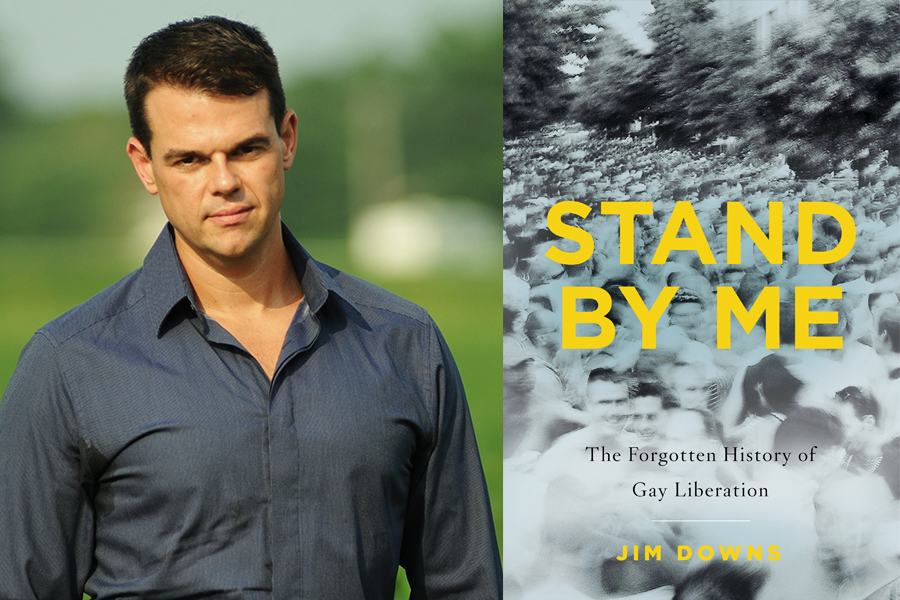In “Stand By Me: The Forgotten History of Gay Liberation,” historian and author Jim Downs sets out to prove there was a more intricate historical narrative to the gay-liberation movement of the 1970s and the subsequent AIDS epidemic of the 1980s than gay men having sex. His extensive research, which began at the William Way LGBT Community Center in Philadelphia in 2005, helps to further prove his argument that gay men were involved in a wide variety of community events that allowed them to explore their identities beyond their sexual lives.
From Craig Rodwell’s opening of the Oscar Wilde Memorial Bookshop in New York City in the late 1960s to the formation and proliferation of the Metropolitan Community Church, Downs explores a wide range of historical points that have proven to be watershed moments for the Gay Liberation Movement of the ’70s.
PGN had the opportunity to speak with the Philadelphia native about his motivation for writing the book, his writing and research methods, his inspiration for becoming a historian and what he hopes readers will take away from the book.
PGN: What was your inspiration for writing this particular book, “Stand By Me?”
JD: I guess my inspiration was I had actually seen a documentary, it was called “Gay Sex in the ’70s.” I decided to write a response to it. I wrote an article for the Gay and Lesbian Review that got published and after writing it I continued doing the research. I thought, Wait, there’s a history in just the fact that gay people felt the need to create newspapers for themselves. It creates a sense of community. I just felt, we just shouldn’t take it for granted. And so I just started finding all of these other kinds of moments and I wanted to write about them.
PGN: What was the writing process like for you? Did you have a certain schedule that you stuck to every day or was it more open-ended?
JD: As far as the writing process is concerned, I wanted to first really immerse myself in the archives and do the research. So, for years, I didn’t write anything. And then as far as the writing is concerned, I never want to sit down to a blank screen and just say, “Where do I start?” I always begin drafting what I want to say in my mind. And then, I try to really draft the first sentence, and then kind of have an idea, and then I rewrite it in my head a couple of times. I’ll just keep writing as much as I can for a particular day and then that evening or maybe the next day or maybe sometimes even the next week I’ll start cleaning it up and editing it a little bit. But I don’t like to do a heavy edit in the beginning because I don’t know where the book is going, so I try to leave it as malleable as possible.
PGN: Was there someone in your life who heavily influenced you to become a historian?
JD: I would probably say that my advisor, Eric Foner, at Columbia was probably the main reason why I became a historian. Eric Foner’s influence is still with me in this book because it taught me that the present does shape how we understand the past. And we, as historians, have to step outside of that. We have to organize the past by what’s in the archives.
PGN: What do you hope for readers to take away from your book?
JD: One of them is to understand that the moment of gay liberation also included a massive intellectual and literary revolution. It wasn’t just people marching on the streets and having sex, but there was also a revolution in the mind.
Jim Downs will sign copies of “Stand By Me: The Forgotten History of Gay Liberation” at 3 p.m. June 11 at the Barnes and Noble bookstore on Rittenhouse Square, 1805 Walnut St.

